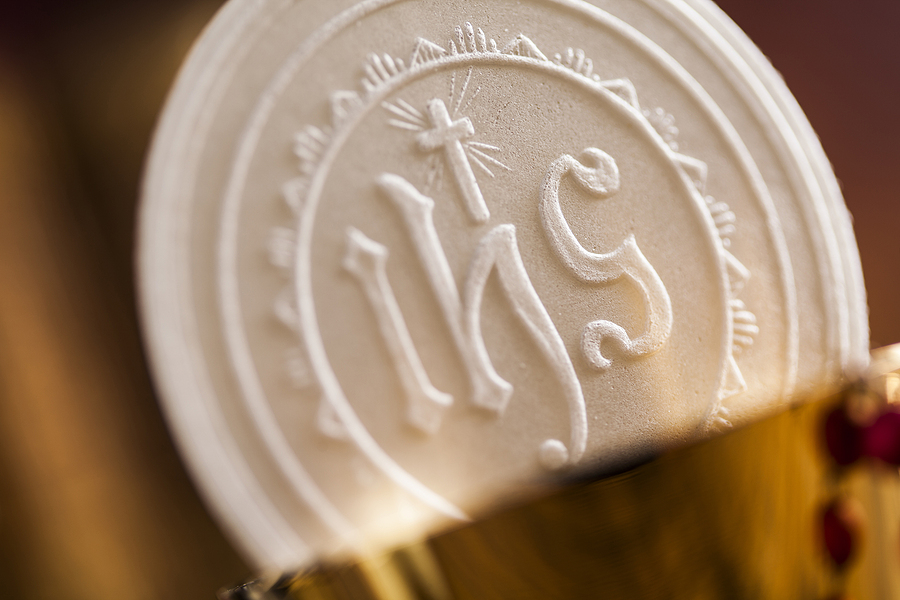
No man can tame the tongue
I should probably title this one “Part Two” because it’s inadvertently a continuation of the article that posted last Sunday on the epistle of James. The daily reading for Saturday February 19th’s Christian liturgy was again, St. James. The phrase, “No man can tame the tongue” shouted at me. And impelled this second article on the gospel book Fr. Alphonse calls the most readable and practical of all the books in the New Testament.
…In the same way the tongue is a small member
and yet has great pretensions.
Consider how small a fire can set a huge forest ablaze.
The tongue is also a fire.
It exists among our members as a world of malice,
defiling the whole body
and setting the entire course of our lives on fire,
itself set on fire by Gehenna.
For every kind of beast and bird, of reptile and sea creature,
can be tamed and has been tamed by the human species
Is it possible to read these words of St James without cringing in shame at times when we’ve given reign to anger, hurt feelings or simply wanting to be the first to reveal a friend’s secret confidence?
Can anyone alive completely supress the memories of friends or enemies whom we’ve burned with our words, even unintentionally?
Here’s the entire reading for last Saturday:
Not many of you should become teachers, my brothers and sisters,
for you realize that we will be judged more strictly,
for we all fall short in many respects.
If anyone does not fall short in speech, he is a perfect man,
able to bridle the whole body also.
If we put bits into the mouths of horses to make them obey us,
we also guide their whole bodies.
It is the same with ships:
even though they are so large and driven by fierce winds,
they are steered by a very small rudder
wherever the pilot’s inclination wishes.
In the same way the tongue is a small member
and yet has great pretensions.
Consider how small a fire can set a huge forest ablaze.
The tongue is also a fire.
It exists among our members as a world of malice,
defiling the whole body
and setting the entire course of our lives on fire,
itself set on fire by Gehenna.
For every kind of beast and bird, of reptile and sea creature,
can be tamed and has been tamed by the human species,
but no man can tame the tongue.
It is a restless evil, full of deadly poison.
With it we bless the Lord and Father,
and with it we curse men
who are made in the likeness of God.
From the same mouth come blessing and cursing.
My brothers and sisters, this need not be so.
Does the first sentence jolt?
“Not many of you should become teachers…for we realize that we will fall short in many respects…”
All too well, I recall the seventies and the emergence of women in management, when I and many colleagues worked to think and act like men…and teach everyone else to do so as well. Even when their natures were gentle, passive and submissive.
His is a fierce reminder to pray for all educators trapped in the morass of dogma who use their influence to corrupt young minds. With St. John Paul the Great, to ask-even beg- that all educators and universities embrace one goal and only one: “gaudium de veritate, so precious to Saint Augustine, which is that joy of searching for, discovering and communicating truth(2) in every field of knowledge…”
Fr. Alphonse added one more caveat during his Saturday morning homily. Elucidating St. James’s words, ‘from the same mouth come blessing and cursing,’ we’re reminded that it is on our tongue that we receive His Body and Blood…the very tongue that criticizes, complains or gossips.
All of which brings us to the vast opportunities coming during these next forty hold days: With practice, we can fit the saint’s description of perfection:
… If anyone does not fall short in speech, he is a perfect man,
able to bridle the whole body also.

Sharing in the Blessedness of Christ
Holiness demands a constant effort, but it is possible
for everyone because, rather than a human effort, it is
first and foremost a gift of God, thrice holy. The Apostle
John remarks: See what love the Father has given us,
that we should be called children of God; and so we
are. It is God, therefore, who loved us first and made
us his adoptive sons in Jesus. Everything in our lives
is a gift of his love: how can we be indifferent before
such a great mystery? How can we not respond to the
heavenly Father’s love by living as grateful children?
In Christ, he gave us the gift of his entire self and calls
us to a personal and profound relationship with him.
Consequently, the more we imitate Jesus and remain
united to him the more we enter into the mystery of
his divine holiness. We discover that he loves us infi-
nitely, and this prompts us in turn to love our brethren.
Loving always entails an act of self-denial, “losing our
selves,” and it is precisely this that makes us happy…
To the extent that we accept his proposal and set out to
follow him—each one in his own circumstances—we
too can participate in his blessedness. With him, the
impossible becomes possible and even a camel can
pass through the eye of a needle; with his help, only
with his help, can we become perfect as the heavenly
Father is perfect.
A Pre-Lenten meditation from Spirtual Direction.
Opening Collect: Lord Jesus Christ, who by word and example in the garden has taught us how to pray so as to overcome the dangers of temptations: mercifully grant that, ever bent on prayer, we may deserve to reap its plentiful fruit…
At the base of the Mount of Olives in the city of Jerusalem, one can find the Basilica of the Agony – Church of All Nations. This church was built over the Garden of Gethsemane where the passion of Jesus began. In front of the main altar of the Church lays the stone upon which Jesus sweated blood in his agony and where the beginning of the prayer of his Passion would occur. Here at this spot, Jesus was desolate and was tempted. He experienced the depths of the mystery spoken of in the Introit of this mass – Ps. 55 (54): 5-6: My heart is troubled within me, and the fear of death has fallen upon me. Fear and trembling have come upon me.
In the mystery of his Agony, Jesus’ human nature was revolting from the idea of his own suffering and from seeing how profound and oppressive it would be.




Thank you ?
Hello my friend, how very cool to hear from you! Thank you for taking the time and I pray a super saturated with grace filled Lent for you and for us all!